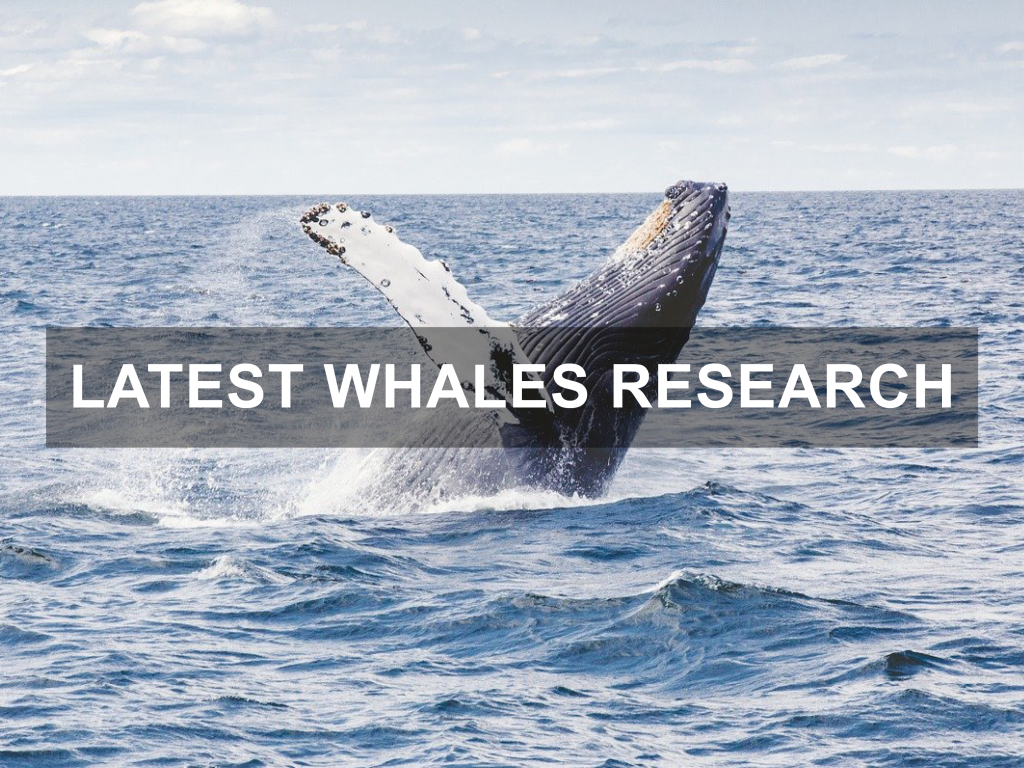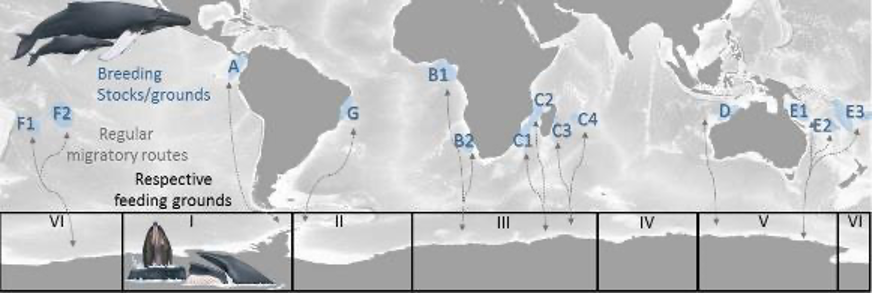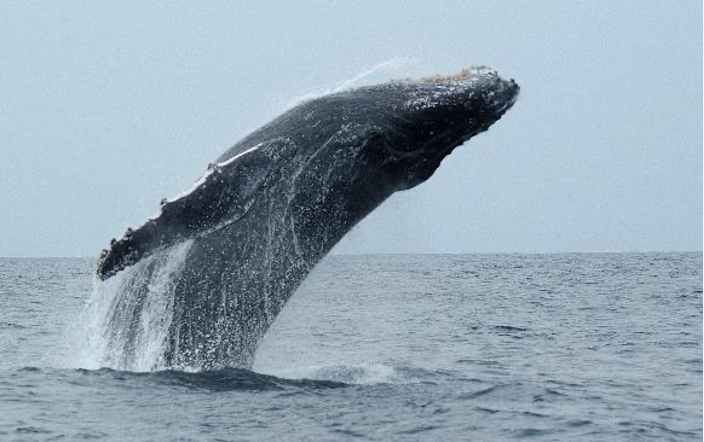Research dives deep to understand climate impacts on whales

Three South African universities are involved in a world-first research project that aims to understand how changes in the ocean influence the recovery of humpback whale populations in the Southern Hemisphere.
During the previous century humpback whale populations were severely depleted by the modern whaling industry, with catches of over 220 000 individuals between 1904 and 1972 (from an existing population of around 140 000 prior to modern whaling). Since protection in the 1960s and 1970s, certain populations have started to recover.
The Whales and Climate Research Program was conceptualised by Prof Alakendra Roychoudhury, an environmental geochemist in the Department of Earth Sciences at Stellenbosch University (SU), in collaboration with Professor Brendan Mackey, Director of the Griffith Climate Change Response Program at Griffith University in Australia. The research team also includes Prof Ken Findlay, a whale expert from the Cape Peninsula University of Technology (CPUT), Associate Professor Marcello Vichi, an oceanographer from the University of Cape Town (UCT), and another four research institutions from South America.
Click below to watch the recent appearance of A. Prof. Marcello Vichi on eNCA, showcasing the launch of the research program, as well as discussing the dissertation project of the AOS MSc student Thando Mazomba.
Whales help us understand the past and the future of the ocean
Prof Roychoudhury says the Southern Ocean is vastly unexplored, and there is an urgent need for both seasonal and long-term observations from this vast expanse of ocean: “A lack of ground-truth data provides a skewed picture in climate models, creating uncertainties. Recent observations of fluxes in carbon dioxide, a major driver in climate change, show that the Southern Ocean is behaving quite differently from what we understand from climatology and satellite data”.
According to Prof Findlay from CPUT, the project breaks new ground in combining historic and more recent long-term datasets with future scenarios in multiple regions in the Southern Hemisphere. The research team from CPUT will dive deep into these datasets: “We hope to identify and link variations in seasonal abundance and distribution of whales to the oceanographic and biogeochemical changes occurring in the Southern Ocean over the same time period,” he explains.
Professor Vichi from UCT says the combination of these different data sets represent a powerful tool to understand changes in whale distribution, and will also serve as validation of climate models: “The concurrent use of ocean models with whale observation networks can help us to understand the recent large aggregations of humpbacks, called super-groups, which we have observed along the Western Cape coast,” he adds.

Migrations paths of seven Southern Hemisphere humpback whale populations (termed A-G) between their summer and winter feeding grounds in the Southern Ocean. Image credit: Whales and Climate Research Program.
The impacts of climate change on whales
Professor Brendan Mackey from Griffith University says the six-year research program would establish a fundamental understanding of how changing ocean conditions were influencing the recovery of humpback whale populations. “Climate change is drastically altering ecosystems and our oceans are experiencing fast changes, affecting all marine life. The project will also develop adaptation scenarios for advancing whale conservation policies and programs,” Professor Mackey said.
Dr Olaf Meynecke, a whale researcher from Griffith University and programme manager, says over the past decade a new understanding of the important role of whales as ecosystems engineers has emerged: “Recent research shows that baleen whales are integral to refertilising the upper 80 metres of the ocean, the photic zone where light penetration drives primary productivity. Whales also act as recyclers of iron, an essential micronutrient, within the upper ocean by feeding on iron-rich Antarctic krill”.
The research teams from Brazil, Chile, Ecuador and Panama will investigate detailed movement of the South American west coast humpback whale population. During the austral summer, these populations migrate to feeding grounds in the cold waters of southern Chile and the Antarctic Peninsula. But, the western Antarctic Peninsula has been experiencing a drastic increase in warming: “There is strong scientific evidence that this warming is affecting the ecosystem,” says Professor Eduardo Secchi, Federal University of Rio Grande in Brazil.

Like most baleen whale species in the Southern Hemisphere, humpback whales make annual migrations across ocean basins, from their summer feeding grounds in the Antarctic polar region to their winter breeding grounds in the coastal tropical and subtropical waters of Africa, Australia and South America. Photo’s: Ken Findlay
Behind The Whales and Climate Research Program
The project will run over six years and the lead team comprises climate scientists, marine ecologists and oceanographers from:
- Stellenbosch University (South Africa) – Professor Alakendra Roychoudhury, Dr Jan Lukas Menzel, Dr Suamik Samanta;
- University of Cape Town (South Africa) – Professor Marcello Vichi, Dr Subhra Dey;
- Cape Peninsula University of Technology (South Africa) – Professor Ken Findlay, Dr Elisa Seyboth;
- Griffith University (Australia) – Professor Brendan Mackey, Dr Olaf Meynecke, Dr Serena Lee and Dr Jasper De Bie;
- Universidade Federal do Rio Grande (Brazil) – Professor Eduardo R. Secchi, Professor Luciano Dalla Rosa, Dr Pedro Fruet, Dr Rodrigo Genoves
- Pontific Catholic University of Ecuador (Ecuador) – Dr Fernando Felix
- Smithsonian Tropical Research Institute (Panama) – Dr Héctor Guzmán
- CEQUA Foundation (Chile) – Dr(c) Jorge Acevedo and Dr Esther Jiménez
Multiple research cruises and field work is scheduled for the feeding and breeding grounds of target populations in Antarctic and the coastlines of Australia, Africa, and South America.
The Whales and Climate Research Program will be hosted at Griffith University. The humpback whale migration models and access to relevant project information will be available at www.whalesandclimate.org.